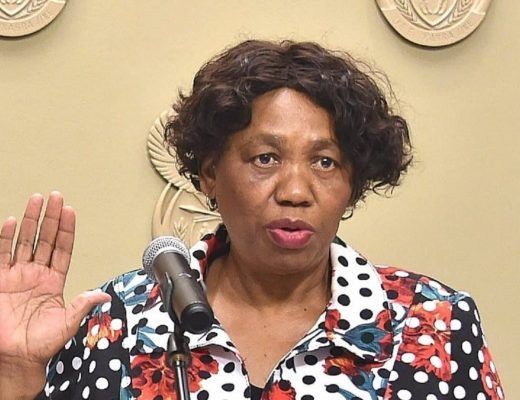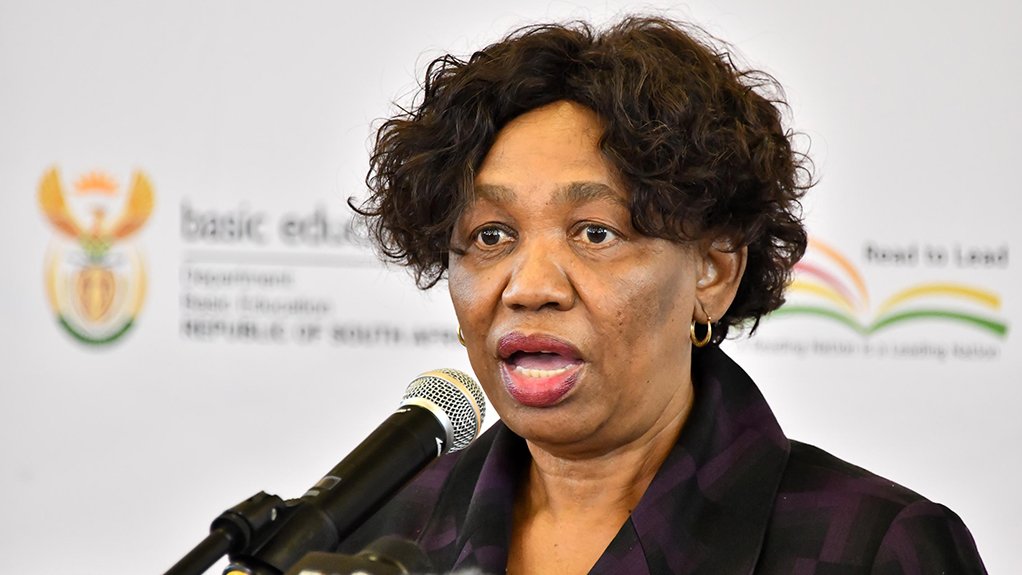Angie Motshekga is a prominent South African politician and educator who has been serving as the Minister of Basic Education since May 2009. Born on June 19, 1955, in Soweto, Motshekga has been actively involved in various capacities in the struggle against apartheid. She holds a BA Education, B Ed from the University of the North and a Masters Degree in Education from the Wits University.
Motshekga’s political career began in the early 1990s when she joined the African National Congress (ANC). She served as the Deputy Secretary-General of the ANC Women’s League from 1993 to 1996 and later became the President of the League from 1998 to 2002. In 2004, she was appointed as a Member of Parliament and served on various committees, including the Portfolio Committee on Education and the Joint Committee on Ethics and Members’ Interests.
As the Minister of Basic Education, Motshekga has been responsible for overseeing the education system in South Africa, including primary and secondary education. Her tenure has been marked by various challenges, including the ongoing struggle to improve the quality of education in the country. Despite these challenges, Motshekga has remained committed to her role and has continued to work towards improving the education system in South Africa.
| Angie Motshekga |
|
|---|---|
 |
|
| Full Name: | Matsie Angelina “Angie” Motshekga |
| Born: | 1999( Age 25) |
| Nationality: | South African |
| Education: | University of Johannesburg |
| Occupation: | Politician |
| Spouse: | Mathole Motshekga |
Early Life and Education
Childhood
Angie Motshekga was born on June 19, 1955, in Soweto, South Africa. She grew up in a politically active family and was exposed to the anti-apartheid movement at a young age. Her parents were both teachers, and they instilled in her a love of learning and a desire to make a difference in the world.
Academic Pursuits
Motshekga received her primary education at various schools in Soweto before attending boarding school in Matatiele, where she completed her matriculation. She went on to study at the University of the North, where she obtained a Bachelor of Arts degree in Education. After completing her degree, she began her teaching career in Soweto.
Motshekga’s passion for education led her to pursue further academic studies. She went on to complete a Master’s degree in Education from the University of the Witwatersrand. She also studied at the University of Johannesburg, where she earned a Doctorate in Education.
Throughout her academic career, Motshekga was involved in various political and civic organizations, including the Soweto Education Crisis Committee, the National Education Coordinating Committee, the United Democratic Front, the National Education Union of South Africa, and the Pimville Civic Association. These experiences helped shape her views on education and social justice and prepared her for her future role as a leader in the education sector.
Overall, Motshekga’s childhood and academic pursuits played a significant role in shaping her worldview and prepared her for a career in education and public service.
Political Career
Entry into Politics
Angie Motshekga’s political career began during the 1980s when she became a member of the Soweto Education Crisis Committee. The committee later formed part of the National Education Coordinating Committee (NECC). During this time, Motshekga was actively involved in the struggle against apartheid.
Minister of Basic Education
In May 2009, Angie Motshekga was appointed as the Minister of Basic Education, a position she has held since then. As the Minister of Basic Education, she is responsible for overseeing the education system in South Africa, from primary to secondary education.
Motshekga’s tenure as the Minister of Basic Education has been marked by various challenges, including the lack of infrastructure in some schools, inadequate teacher training, and the problem of school violence. However, she has also implemented various initiatives aimed at improving the education system, such as the introduction of the Annual National Assessments (ANAs) and the National School Nutrition Programme (NSNP).
Under Motshekga’s leadership, the education system in South Africa has seen some improvements, with increased enrollment rates and improved matriculation results. However, there is still much work to be done to ensure that every child in South Africa has access to quality education.
